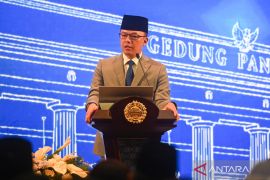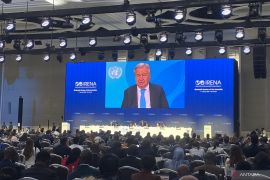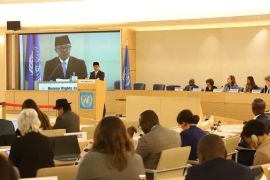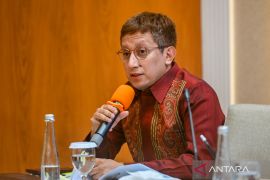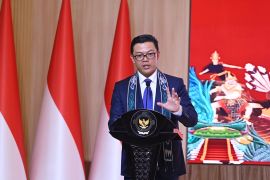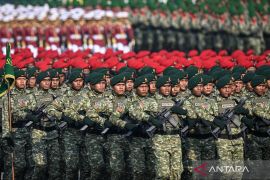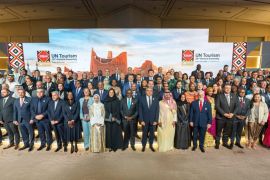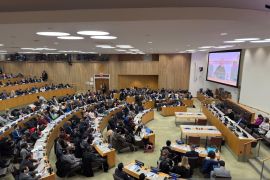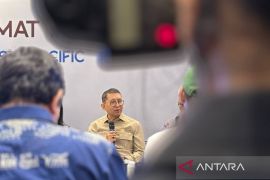Russia and China voted against the proposal at the International Atomic Energy Agency (IAEA), highlighting big-power divisions that may augur vetoes of any punitive measures by the U.N. council in New York.
It was the first time the governing board of the IAEA -- the Vienna-based U.N. body tasked with preventing the spread of nuclear weapons -- referred a country to the Security Council since it sent Iran`s file there five years ago.
With 17 votes in favour and six against, the IAEA`s 35-nation board adopted the Western-backed resolution rebuking the Arab state for three years of stonewalling an agency probe into the Dair Alzour complex bombed by Israel in 2007.
U.S. intelligence reports have said it was a nascent, North Korean-designed reactor intended to produce plutonium for atomic weaponry before warplanes reduced it to rubble.
The IAEA gave independent backing to the U.S. allegation in a report last month which said the facility was "very likely" to have been a reactor.
Syria says it was a non-nuclear military facility.
Its envoy to the IAEA called the vote outcome "regrettable" but suggested Damascus would not take any retaliatory steps.
"I think Syria has always been committed to its obligations and to its duties and I think we will continue to do so," Bassam Al-Sabbagh told reporters, when asked if it would affect Syria`s cooperation with the U.N. body.
The board resolution found Syria -- which is also facing Western sanctions over its violent crackdown on pro-democracy protests -- in "non-compliance" with its international obligations.
U.S. Ambassador Glyn Davies said the IAEA board could not accept Syria`s "concealment" of nuclear activities.
"There is no other reason for the construction of a reactor meant to produce plutonium than as part of a weapons programme," he told reporters, describing the project as a threat to international peace and security.
"They really should come clean about what they were doing in the desert," Davies added, urging Syrian cooperation.
In Washington, Jay Carney, U.S. President Barack Obama`s press secretary, welcomed the IAEA move, saying in a statement that it "marks a significant action by the international community to uphold the nonproliferation rules of the road."
Iran precedent
The move came a day after Britain, France, Germany and Portugal gave the Security Council a draft resolution condemning Syria`s crackdown on protesters, despite risking a Russian veto.
Several non-Western IAEA board members had expressed scepticism about sending the nuclear issue to New York, with some arguing that whatever happened at Dair Alzour was now in the past and did not represent a current threat.
Diplomats said those expressing doubt, apart from Russia and China, included some Arab states and developing nations. Azerbaijan, Ecuador, Pakistan and Venezuela voted no and 11 countries abstained.
Russian Ambassador Grigory Berdennikov said the resolution was "untimely and not objective," and that Moscow`s suggestions for changes to the wording had not been taken on board.
Berdennikov said that while there may have been some Syrian
wrongdoing, the site did not now pose a threat because it had been destroyed. China said it was "unnecessary" to report the issue to the council.
Russia and China are especially important because they are among the five permanent, veto-wielding members of the Security Council, along with the United States, France and Britain.
The 15-nation forum has the power to impose sanctions, as it has done four times over Iran`s nuclear programme.
The IAEA board reported Iran to the Security Council in 2006 over its failure to dispel suspicions it was trying to develop atomic arms. Tehran has since been hit with four rounds of U.N. sanctions over its refusal to halt sensitive nuclear work.
Syria, an ally of Iran, denies harbouring a nuclear weapons programme. In a bid to derail any censure by the IAEA, Syria offered last month to fully cooperate with the agency, after earlier rebuffing repeated requests for access to Dair Alzour.
Western diplomats dismissed this as a tactical move and said it was important for the board to act as it would also send a warning signal to other countries such as Iran.
(Uu.SYS/C/C003/C/C003) (*)
Editor: Ella Syafputri
Copyright © ANTARA 2011
